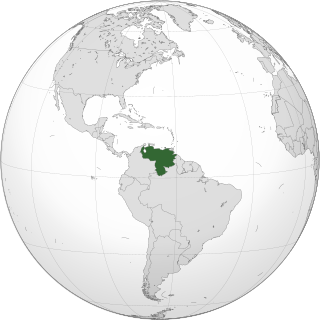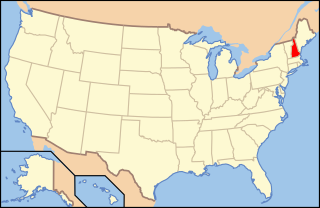| |||
|---|---|---|---|
| +... |
This is a list of notable events in the history of LGBT rights that took place in the year 1999.
| |||
|---|---|---|---|
| +... |
This is a list of notable events in the history of LGBT rights that took place in the year 1999.
This is a list of notable events in the history of LGBT rights that took place in the year 2002.
This is a list of notable events in the history of LGBT rights that took place in the year 1991.
This is a list of notable events in the history of LGBT rights that took place in the year 1996.
This is a list of notable events in the history of LGBT rights that took place in the year 2000.
This is a list of notable events in the history of LGBT rights that took place in the year 2003.
This is a list of notable events in the history of LGBT rights that took place in the year 1993.
This is a list of notable events in the history of LGBT rights that took place in the year 1995.
This is a list of notable events in the history of LGBT rights that took place in the year 2005.

Lesbian, gay, bisexual, and transgender (LGBT) people in Venezuela face legal challenges not experienced by non-LGBTQ residents. Both male and female types of same-sex sexual activity are legal in Venezuela, but same-sex couples and households headed by same-sex couples are not eligible for the same legal protections available to opposite-sex married couples. Also, same-sex marriage and de facto unions are constitutionally banned since 1999.
This is a list of notable events in the history of LGBT rights that took place in the year 2006.

Lesbian, gay, bisexual, transgender and queer (LGBTQ) rights in Mexico expanded in the 21st century, keeping with worldwide legal trends. The intellectual influence of the French Revolution and the brief French occupation of Mexico (1862–67) resulted in the adoption of the Napoleonic Code, which decriminalized same-sex sexual acts in 1871. Laws against public immorality or indecency, however, have been used to prosecute persons who engage in them.
This is a list of notable events in the history of LGBT rights that took place in the year 2007.

Lesbian, gay, bisexual, and transgender (LGBT) people in Nicaragua face legal challenges not experienced by non-LGBTQ residents. Both male and female types of same-sex sexual activity are legal in Nicaragua. Discrimination based on sexual orientation is banned in certain areas, including in employment and access to health services.

Lesbian, gay, bisexual, and transgender (LGBT) people in Honduras face legal challenges not experienced by non-LGBTQ residents. Both male and female types of same-sex sexual activity are legal in Honduras.

Lesbian, gay, bisexual, transgender, and queer (LGBTQ) people in the U.S. state of New Hampshire enjoy the same rights as non-LGBTQ people, with most advances in LGBT rights occurring in the state within the past two decades. Same-sex sexual activity is legal in New Hampshire, and the state began offering same-sex couples the option of forming a civil union on January 1, 2008. Civil unions offered most of the same protections as marriages with respect to state law, but not the federal benefits of marriage. Same-sex marriage in New Hampshire has been legally allowed since January 1, 2010, and one year later New Hampshire's civil unions expired, with all such unions converted to marriages. New Hampshire law has also protected against discrimination based on sexual orientation since 1998 and gender identity since 2018. Additionally, a conversion therapy ban on minors became effective in the state in January 2019. In effect since January 1, 2024, the archaic common-law "gay panic defence" was formally abolished; by legislation implemented within August 2023.

Lesbian, gay, bisexual, and transgender (LGBT) people in the Dominican Republic do not possess the same legal protections as non-LGBTQ residents, and face social challenges that are not experienced by other people. While the Dominican Criminal Code does not expressly prohibit same-sex sexual relations or cross-dressing, it also does not address discrimination or harassment on the account of sexual orientation or gender identity, nor does it recognize same-sex unions in any form, whether it be marriage or partnerships. Households headed by same-sex couples are also not eligible for any of the same rights given to opposite-sex married couples, as same-sex marriage is constitutionally banned in the country.

Baehr v. Miike was a lawsuit in which three same-sex couples argued that Hawaii's prohibition of same-sex marriage violated the state constitution. Initiated in 1990, as the case moved through the state courts, the passage of an amendment to the state constitution in 1998 led to the dismissal of the case in 1999. The Full Faith and Credit Clause of the Constitution would have provided that all states would be potentially required to recognize marriages obtained in Hawaii, prompting the passage of the federal Defense of Marriage Act (DOMA) in 1996 under Bill Clinton. Dozens of statutes and constitutional amendments banning same-sex unions at the state level also followed Baehr.

Vermont is seen as one of the most liberal states in the U.S. in regard to lesbian, gay, bisexual, transgender, and queer (LGBTQ) rights, with most progress in jurisprudence having occurred in the late 20th and the early 21st centuries. Vermont was one of 37 U.S. states, along with the District of Columbia, that issued marriage licenses to same-sex couples prior to the landmark Supreme Court ruling of Obergefell v. Hodges, establishing equal marriage rights for same-sex couples nationwide.

Lesbian, gay, bisexual, transgender, and queer (LGBTQ) people in the U.S. state of Nebraska may face some legal challenges not experienced by non-LGBTQ residents. Same-sex sexual activity is legal in Nebraska, and same-sex marriage has been recognized since June 2015 as a result of Obergefell v. Hodges. The state prohibits discrimination on account of sexual orientation and gender identity in employment and housing following the U.S. Supreme Court's ruling in Bostock v. Clayton County and a subsequent decision of the Nebraska Equal Opportunity Commission. In addition, the state's largest city, Omaha, has enacted protections in public accommodations.

LGBT employment discrimination in the United States is illegal under Title VII of the Civil Rights Act of 1964; employment discrimination on the basis of sexual orientation or gender identity is encompassed by the law's prohibition of employment discrimination on the basis of sex. Prior to the landmark cases Bostock v. Clayton County and R.G. & G.R. Harris Funeral Homes Inc. v. Equal Employment Opportunity Commission (2020), employment protections for LGBT people were patchwork; several states and localities explicitly prohibit harassment and bias in employment decisions on the basis of sexual orientation and/or gender identity, although some only cover public employees. Prior to the Bostock decision, the Equal Employment Opportunity Commission (EEOC) interpreted Title VII to cover LGBT employees; the EEOC determined that transgender employees were protected under Title VII in 2012, and extended the protection to encompass sexual orientation in 2015.